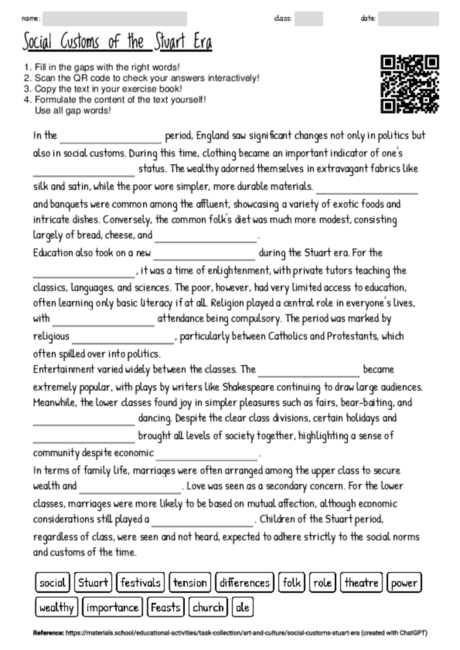Social Customs of the Stuart Era
The cloze text on the social customs of the Stuart period in England provides an engaging way to explore historical contexts and societal structures with students aged 12 to 16. By removing key terms and asking students to fill them in, it encourages active reading and helps in reinforcing vocabulary and comprehension of the period. This method prompts students to focus on understanding the content deeply to identify the missing words correctly.
The choice of the Stuart period, with its rich tapestry of social, political, and religious dynamics, offers a multifaceted view of history. Students can learn about the differences in clothing, diet, education, and entertainment across social classes, fostering discussions on social inequality and the impact of socio-economic status on people's lives. The inclusion of religious tension and its influence on politics provides a basis for understanding how religion shaped societal norms and values.
Furthermore, the text highlights how marriages were arranged among the upper class to maintain or increase power and wealth, contrasting with the lower classes' marriages based on mutual affection, illustrating the diverse perspectives on personal relationships during the period.
Overall, the use of a cloze text on this topic not only enhances reading and critical thinking skills but also offers a springboard for discussions on historical societal structures, their implications, and how they compare to today's society. It serves as a valuable tool in both the learning and reinforcement phases of historical education, making the past accessible and engaging for young learners.

